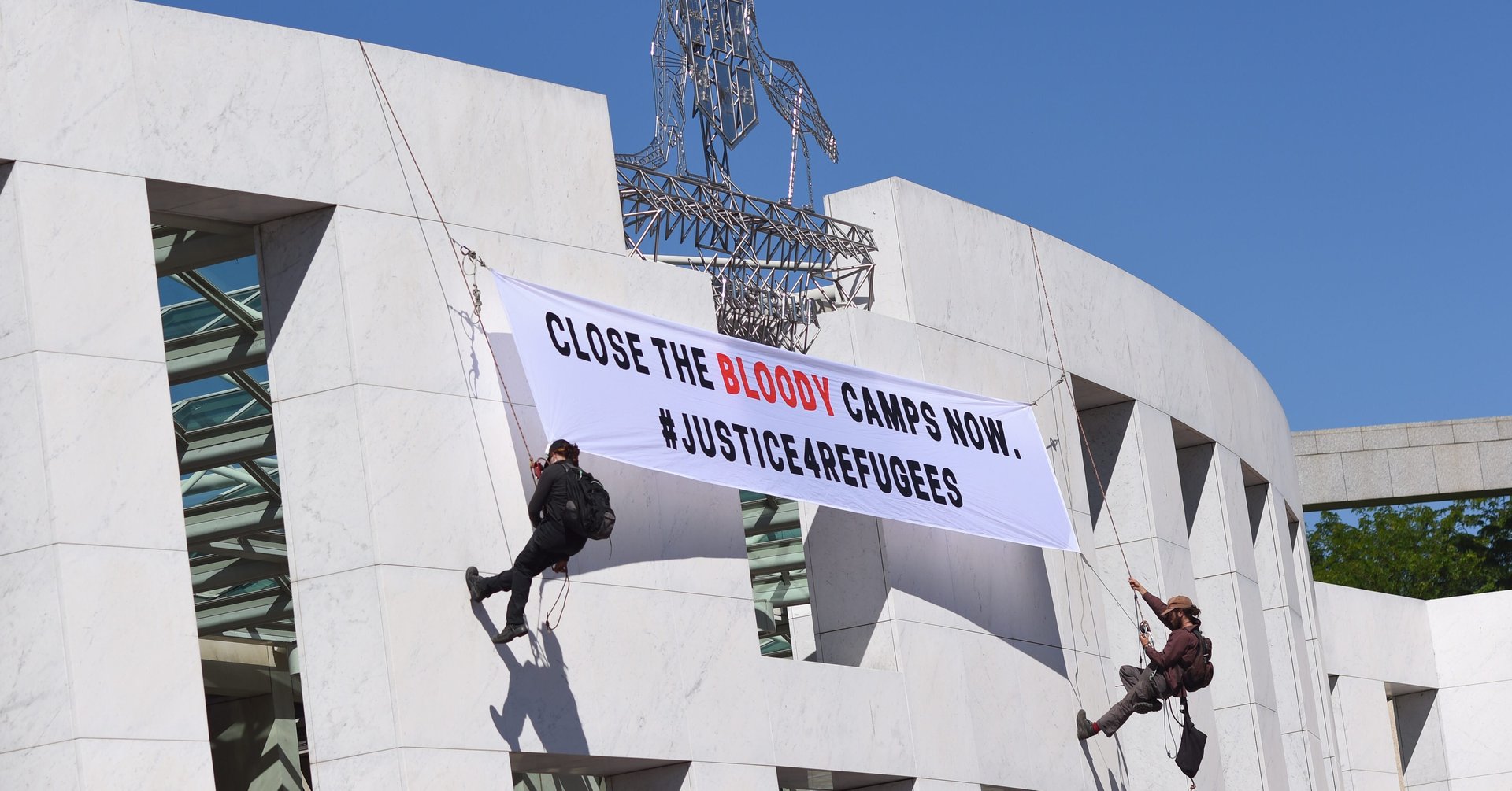Thanks to Trump, Australian politicians are gloating about their nation’s draconian refugee policy
Among all the Western democracies that have spoken out against the Trump administration’s controversial immigration order—banning all refugees for the next four months, and Syrian refugees indefinitely—one country is conspicuously absent: Australia.


Among all the Western democracies that have spoken out against the Trump administration’s controversial immigration order—banning all refugees for the next four months, and Syrian refugees indefinitely—one country is conspicuously absent: Australia.
Australia has instead taken the opportunity to talk up its own draconian refugee policy, under which refugees arriving by boat are not only barred from entering the country, but also permanently banned from it, even if they have legitimate asylum claims. That has resulted in thousands being sent to detention centers on remote Pacific islands, where serious human rights violations against detainees have been documented.
“[W]e are the envy of the world when it comes to strong border protection policies,” Australia’s treasurer Scott Morrison boasted on a radio show this week. “The rest of the world would love to have our borders and the way they are secured and the immigration arrangements we have put in place, particularly most recently, over the last three or four years… Really, the rest of the world is catching up to Australia.”
Prime minister Malcolm Turnbull said it was not his place to comment on other countries’ immigration policies, but said that he was “proud” of Australia’s “strong [immigration] systems.” The fact that the fate of hundreds of refugees waiting to be potentially resettled in the US—under an agreement struck between the US and Australia under the Obama administration—remains up in the air, however, suggests that Trump’s policy is not simply just a domestic US affair.
The offshore detention centers on Nauru (an island nation) and Manus Island (part of Papua New Guinea) were reopened under Julia Gillard’s government in 2012. During Labor prime minister Kevin Rudd’s administration in 2013, Australia struck a deal (widely known as the “PNG Solution”) with Papua New Guinea whereby asylum seekers arriving by boat in Australia would be settled in PNG instead. It also put the military in charge of its borders, under Operation Sovereign Borders. Rudd said the move would help curb people-smuggling. He also imposed a temporary ban on asylum seekers from Sri Lanka and Afghanistan in 2010, amid a surge in people attempting to get to Australia by boat.
Australia has certainly won fans at home and abroad for its tough border policies. Elaine Pearson, the Australia director of Human Rights Watch, said its refugee policy continues because it has “popular support.” One poll taken last year found that almost half of Australians support a ban on Muslim immigrants. Abroad, far-right parties in Europe and mainstream Tories in the UK have also expressed admiration for Australia’s tough policies, wrote Australian columnist and academic Waleed Aly last year in the New York Times (paywall).
In 2015, Australia ranked 25th in terms of the total number of refugees taken by a country, and 32nd on a per capita basis.